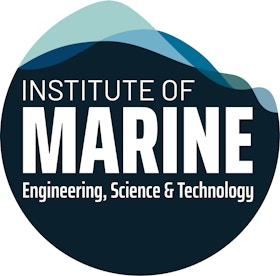This year’s Institute of Marine Engineering, Science & Technology (IMarEST) annual conference will highlight the importance of decarbonisation within the marine sector; reducing CO2 emissions, alternative fuels, offshore renewables and net-zero strategies to counteract global warming.
Building on the success of 2020, which attracted over 30 sessions, 65 speakers and 3,000 delegates from more than 90 countries, the two week online IMarEST Annual Conference 2021 will feature multiple streams exploring many of the big topics across marine engineering, science & technology.
This year’s conference, taking place from 28 June – 9 July, will bring together industry experts to explore a variety of themes.
Leigh Storey, Associate Director of National Marine Facilities at the National Oceanography Centre reports upon Clean energy and transport/Net Zero Oceanographic Capability. The infrastructure that supports oceanographic research remains founded upon the traditional methods of collecting data: scientists embarking upon a ship-based research expedition. As the maritime industry works to reduce carbon emissions, the ecosystem supporting marine science must do the same.
Setting a benchmark for decarbonising O&M vessels of offshore wind farms is introduced by Dr Anthony Gray, Techno-Economic Analyst at ORE Catapult. As a growing number of nations set net-zero emissions targets in order to tackle the effects of climate change, increasing focus is being placed on decarbonising industry. With the huge growth expected in offshore wind, a sector which will contribute significantly to these net-zero goals, an area that is becoming of interest is the decarbonisation of vessels involved in the 20+ year operations and maintenance (O&M) phase of offshore wind farms.
Nick Williams, Graduate Naval Engineer at BMT introduces Energy Saving Technology Asset Leasing Models Proof of Concept and Feasibility Study. Energy Saving Technologies (ESTs) are one of the methods available to reduce the carbon emissions from shipping. Previous research has shown there to be social, technical and economic barriers to wholesale EST adoption. For some ESTs a requirement for a payback period of less than two years can stifle adoption of the technology. Asset Leasing Models (ALMs) may provide a route to mitigating this barrier and offer potential to attract new finance to the sector.
Soon Heng LIm, from the Society of Floating Solutions will talk about Transitioning from fossils to nuclear safely and affordably with floating nuclear plants. Wind and solar power have made impressive advances. However, they are insufficient to curb global warming and rising seas. The adoption of SMRs (Small Modular Reactors) offers a quantum leap to battle against climate change sustainably.
Clean energy and transport / VLSFO and alternative fuels is explored by Naeem Javaid, Global Operations Manager for the marine fuel advisory service at Lloyd’s Register. Shipping provides food, manufactured goods and the bulk transport of raw materials to millions around the world, contributing to prosperity by filling a critical social and economic function. However, shipping must meet increasing demands of its own customers and of society as a whole to reduce greenhouse gas emissions.
Mark Calverley from Blue Ocean Consulting Ltd highlights a number of challenges in Offshore Renewables – Rising to the delivery challenge. Offshore renewables are recognised as a key component of the energy transition. The appetite of both politicians and financial markets to embrace offshore renewables is welcome and offers a great opportunity. However, challenges lie ahead to deliver the amount of power required to reduce carbon emissions to meet the aspirations of the Paris Agreement, critical to the future of the planet. These challenges extend to many of the knowledge areas represented by the IMarEST Special Interest Groups, and well beyond just the Offshore Renewables SIG.
The Role of the Marine Environment in our Energy Transition and the push toward Net Zero is addressed by Edward Walker, Principal Environmental Consultant at AECOM. Climate change is possibly the greatest challenge which humanity has faced and as the push toward net zero by 2050 gains increasing momentum, we ask what role can our marine environment play in this global transition?
Gwynne Lewis, Chief Executive of the IMarEST, comments: “We have an exceptional roster of speakers for this year’s Annual Conference, exploring many of the most pertinent subjects across marine engineering, science and technology. We will be utilising a mixture of live formats to provide delegates a flexible and unrivalled opportunity to participate in debates and learn from global industry leaders.”
For more information on the conference, or to speak to one of the conference delegates about the subjects listed above, please call Chloe Buchanan, PR Lead at The MTM Agency on +44 (0)7818 815735 or email: chloe@themtmagency.com
Attendees can register for the event via the IMarEST’s website here.
Publish your content with EB Publishing
It's about who you reach. Get your news, events, jobs and thought leadership seen by those who matter to you.











